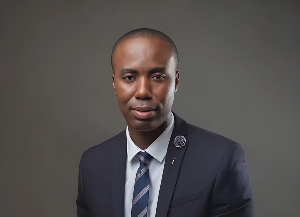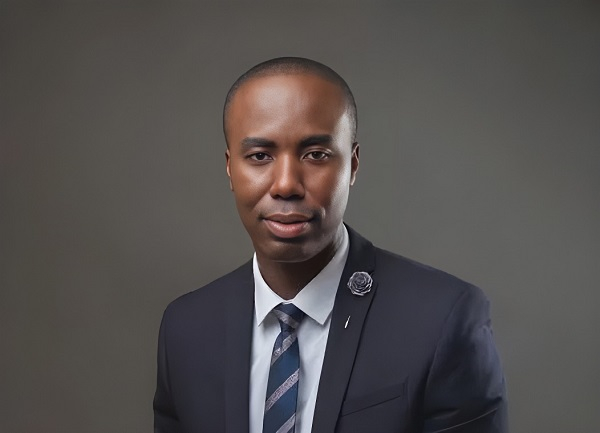 Former Director-General of the National Signals Bureau, Kwabena Adu-Boahene
Former Director-General of the National Signals Bureau, Kwabena Adu-Boahene
Drama unfolded in the High Court in Accra on Thursday afternoon October 23, 2025, when lawyers for the former Director-General of the National Signals Bureau, Kwabena Adu-Boahene, led by Samuel Atta Akyea, staged a walked out during Court proceedings.
This was after the court, presided over by Justice John Eugen Nyante Nyadu, had declined their request to adjourn proceedings to abide by a motion filed at the Supreme Court on October 22 to prohibit the trial judge on grounds of alleged bias.
Moments after the court had held that the proceedings of the day would proceed with the 2nd prosecution witness mounting the witness box, Samuel Atta Akyea sought leave to leave.
The court did not grant his request to leave and insisted that proceedings continue with the witness testifying.
The defense lawyers said they had other engagements and left the courtroom while the 2nd witness proceeded to sit in the witness box.
“Let the records reflect that counsel for the accused/applicants have abandoned the proceedings of the High Court consequent to the ruling of this court,” the judge stated.
Samuel Atta Akyea, lead Counsel for the Accused persons had told the court that “Yesterday, (Wednesday, October 22), we filed a process at the Supreme Court by way of an application for prohibition (of the judge).”
In the circumstances, he prayed for the proceedings on Thursday, October 23, to be adjourned to abide by the outcome of the Supreme Court case.
State prosecutors led by Esi Dentaa Yankah, a Principal State Attorney, kicked against the prayer and said the mere filing of that application did not automatically warrant an adjournment.
Copious arguments were made forth and back by all parties, with each buttressing their position with authorities.
Ruling on the application, the court said: “On the application for adjournment of proceedings consequent to the pendency of an application for a motion prohibiting me from further hearing the case, counsel for the accused persons has drawn my attention to the Supreme Court decision …. wherein the Supreme Court, in trying to establish bias of the judge in the issue of that case, among other cases, stated that the said application for oral application for an adjournment to abide by the outcome of the motion for prohibition.
“I have also chanced upon a similar decision by the Supreme Court titled the Republic vs. Fast Track High Court, Accra; Ex parte Garri Daniel, reported in 2003/4 SCGLR… where the same Supreme Court has categorically stated that the pendency of an application for prohibition against the trial court does not automatically operate to stay proceedings in the court whose proceedings are being challenged.
“Considering the fact that this earlier decision of the Supreme Court was not distinguished in the Exportec Kennedy Agyapong case, there appear to be two conflicting Supreme Court decisions on what the position is when a motion for prohibition is filed or brought against the trial court.
“Counsel for the applicants/accused persons prayed for an adjournment and not a stay of proceedings. The bit of stay of proceedings was introduced by the decision in the Kennedy Agyepong case to buttress his submission.
“It is to be noted that adjournments, by a plethora of authorities, are at the sole discretion of the trial court. In the instant case, no miscarriage of justice would be occasioned to the accused persons/applicants if proceedings continue today (Thursday) for the reason that, first, no finding has yet been made by the Supreme Court on the pending motion.
“Secondly, should the applicants be successful with their pending application and the Supreme Court makes an observation of any impropriety on the part of this court, consequential orders will accordingly be made by the Supreme Court to correct all wrongs, and no miscarriage of justice would be occasioned.
“Accordingly, the oral application for an adjournment is hereby refused, and I order the witness to mount the witness box for continuation,” the Court ruled.
The case consequently has been adjourned to October 30, 2025 for continuation.
